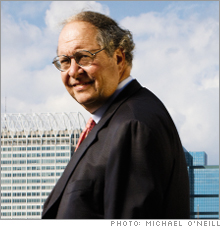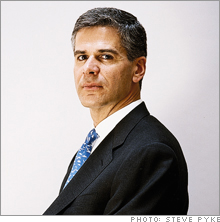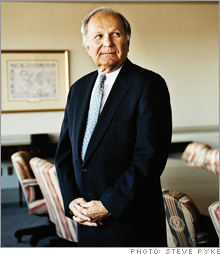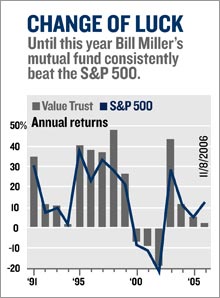The greatest money manager of our timeWhat do ant colonies, novels and river systems have to do with making money? Ask Bill Miller, the man who's topped the market 15 years running. Fortune managing editor Andy Serwer reports.(Fortune Magazine) -- Have you heard the story about the money managers and the three bears? It was a gorgeous afternoon last June on a ranch outside Cody, Wyo. Legendary investor Bill Miller was riding horseback with Chris Davis of Davis Funds and Michael Larson, who runs Cascade, Bill Gates' investment company. The three had been out about an hour when dead ahead of them, no more than 100 yards off, appeared three grizzly bears. Larson gently pulled up on his reins and quietly began to back his horse away. But Miller had other ideas. "Let's see how close we can get," he said, and edged ahead. Larson stayed back. "I don't know what Bill was thinking," Larson said later. "I guess he figures he's on a horse and can ride faster than Chris Davis."
| |||||||||||||||||||||||||||||||||||||||||||||||||||||




